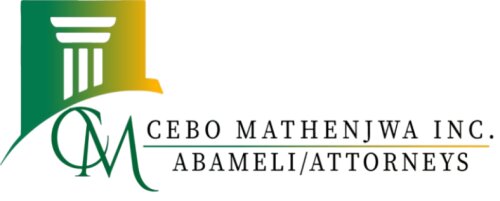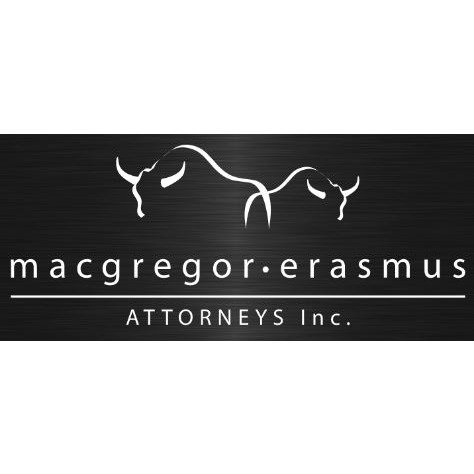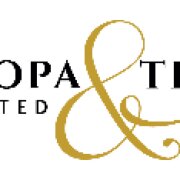Best Employment Rights Lawyers in Johannesburg
Share your needs with us, get contacted by law firms.
Free. Takes 2 min.
List of the best lawyers in Johannesburg, South Africa
About Employment Rights Law in Johannesburg, South Africa
Employment Rights in Johannesburg are governed by a comprehensive framework of laws designed to protect both employees and employers. The primary legislation is the Labour Relations Act, the Basic Conditions of Employment Act, and the Employment Equity Act. These laws aim to ensure fair labor practices and equity in the workplace, promote economic development, fair treatment, and social justice. Johannesburg, as a major economic hub, adheres to these national standards while accommodating the unique dynamics of its local workforce.
Why You May Need a Lawyer
Legal complexities can arise in employment situations that may necessitate the expertise of a lawyer. Common situations include disputes over unfair dismissals, contract breaches, workplace discrimination, disputes over salary or benefits, and retrenchment processes. A lawyer specializing in employment rights can provide guidance, represent you in negotiations or court proceedings, and help ensure your rights are protected under the law.
Local Laws Overview
In Johannesburg, employment rights are protected under several key pieces of legislation:
- Labour Relations Act: This act is crucial for protecting employees' rights regarding unfair dismissal and disciplinary procedures. It also covers collective bargaining and dispute resolution.
- Basic Conditions of Employment Act: This sets minimum standards for employment terms, such as working hours, leave, and remuneration.
- Employment Equity Act: Aimed at promoting equal opportunity and fair treatment in the workplace, this act is particularly important in addressing discrimination and encouraging diversity.
- Occupational Health and Safety Act: Ensures safe working conditions, which employers must comply with to avoid penalties and protect workers.
Frequently Asked Questions
What constitutes unfair dismissal?
Unfair dismissal occurs when an employee is terminated without a fair reason or without following the correct procedure as outlined by the Labour Relations Act. Reasons must be valid and related to the employee’s conduct, capacity, or operational necessities of the business.
What should I do if I face workplace discrimination?
Under the Employment Equity Act, discrimination based on race, gender, disability, and other categories is prohibited. If you face discrimination, you should document incidents and seek advice from a lawyer or a relevant HR department.
Are there standard working hours in Johannesburg?
The Basic Conditions of Employment Act stipulates standard working hours as 45 hours per week. Overtime must be compensated appropriately, and employees cannot be forced to work excessive hours.
What leave am I entitled to as an employee?
Employees are entitled to annual leave, sick leave, maternity leave, and family responsibility leave as per the Basic Conditions of Employment Act. The specifics depend on the contractual agreement and legal minimums.
How can I address issues related to unpaid wages?
If an employer fails to pay wages, it is a breach of contract under the Basic Conditions of Employment Act. Legal action can be pursued through the Commission for Conciliation, Mediation, and Arbitration (CCMA) or a labor court.
Can I be retrenched, and what are my rights in such a case?
Retrenchment is permissible if conducted for genuine operational reasons. Employees have the right to a fair retrenchment process, which includes consultation and severance pay.
Are verbal employment contracts valid?
While verbal contracts are legally binding if employment has commenced, it is always preferable to have a written contract to clearly outline terms and conditions, reducing the risk of disputes.
How do I address issues of workplace harassment?
Workplace harassment should be formally reported to a manager or HR, and if unaddressed, legal action can be pursued. The Employment Equity Act provides recourse for employees facing harassment.
What steps should be taken if employee rights are violated?
Document all incidences, seek internal resolution through HR, and if that fails, consult with a legal advisor or approach the CCMA to explore further legal remedies.
Are internships covered under South African labor laws?
Internships are covered under labor laws if an employment relationship exists. Interns should have written agreements outlining duties, compensation, and duration, maintaining compliance with employment standards.
Additional Resources
There are numerous resources available for individuals seeking advice on employment rights in Johannesburg:
- Commission for Conciliation, Mediation, and Arbitration (CCMA): Provides dispute resolution services.
- Department of Labour: Offers resources and information on employment laws and workers’ rights.
- Legal Aid South Africa: Provides legal assistance to those who cannot afford private lawyers.
- South African Labour Guide: A comprehensive source for understanding various labor laws and regulations.
Next Steps
If you find yourself needing legal assistance with employment rights, it is crucial to act promptly. Start by documenting all related events and communications. Seek initial advice from free resources like the Department of Labour or contact the CCMA for potential early resolution. For more personalized assistance, consider consulting an employment lawyer who can provide specific legal advice based on your situation. Establishing a proactive approach ensures you have the necessary support to address your employment issues effectively.
Lawzana helps you find the best lawyers and law firms in Johannesburg through a curated and pre-screened list of qualified legal professionals. Our platform offers rankings and detailed profiles of attorneys and law firms, allowing you to compare based on practice areas, including Employment Rights, experience, and client feedback.
Each profile includes a description of the firm's areas of practice, client reviews, team members and partners, year of establishment, spoken languages, office locations, contact information, social media presence, and any published articles or resources. Most firms on our platform speak English and are experienced in both local and international legal matters.
Get a quote from top-rated law firms in Johannesburg, South Africa — quickly, securely, and without unnecessary hassle.
Disclaimer:
The information provided on this page is for general informational purposes only and does not constitute legal advice. While we strive to ensure the accuracy and relevance of the content, legal information may change over time, and interpretations of the law can vary. You should always consult with a qualified legal professional for advice specific to your situation.
We disclaim all liability for actions taken or not taken based on the content of this page. If you believe any information is incorrect or outdated, please contact us, and we will review and update it where appropriate.
















